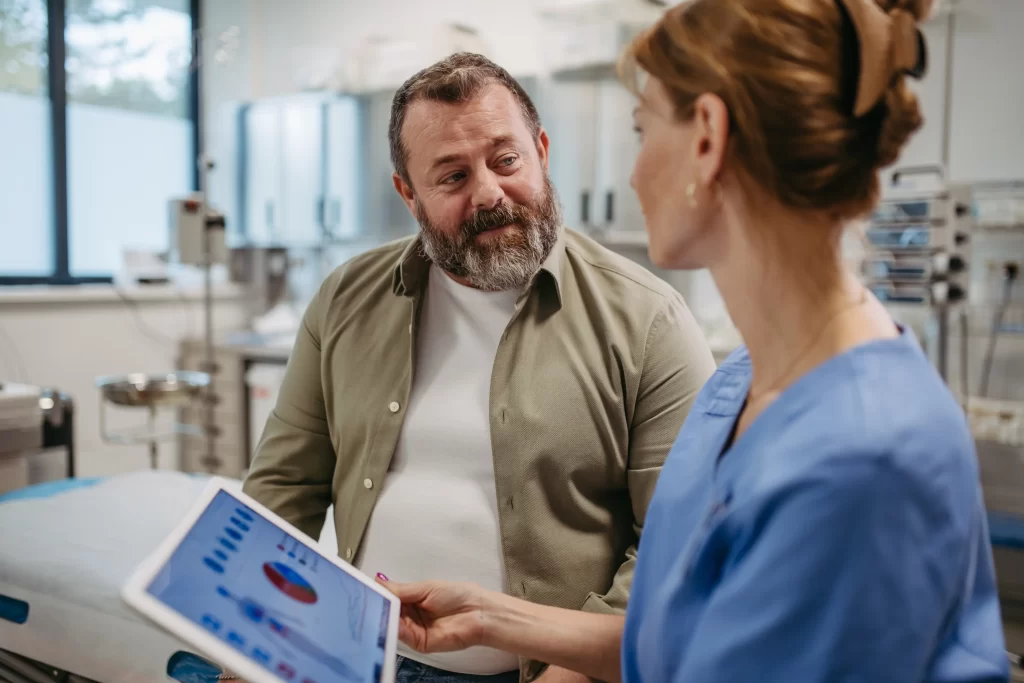What is Gastroesophageal Reflux Disease (GERD)?
Gastroesophageal reflux disease (GERD) is a chronic condition where stomach acid frequently flows back into the esophagus, causing irritation and damage to the esophageal lining. This reflux happens when the lower esophageal sphincter, a muscle at the base of the esophagus, weakens or relaxes inappropriately, allowing stomach acid to escape. Common symptoms of GERD include:
- Persistent heartburn
- Acidic taste in the mouth
- Difficulty swallowing
- Regurgitation of food or sour liquid
- Chest pain, especially after eating or when lying down
If left untreated, GERD can lead to more serious complications, such as esophageal inflammation, ulcers, or even a precancerous condition known as Barrett’s esophagus. While lifestyle changes and medications may alleviate symptoms for some, many individuals require a more permanent solution, such as anti-acid reflux surgery, to manage the condition effectively.
If you are struggling with severe GERD symptoms that interfere with your daily life, request an appointment with our team today to explore your treatment options.
What is Anti-Acid Reflux Surgery?
Anti-acid reflux surgery, also called fundoplication, is a procedure designed to treat gastroesophageal reflux disease (GERD). This procedure focuses on correcting the underlying cause of GERD by strengthening or repairing the lower esophageal sphincter (LES)—the muscle that prevents stomach acid from flowing back into the esophagus.
During the surgery, the upper part of the stomach is wrapped around the lower esophageal sphincter to strengthen it and improve its ability to close properly, which helps stop acid reflux. At Caribbean Bariatric Institute, this procedure is performed laparoscopically, using small incisions and a camera to guide the surgeon. Anti-acid reflux surgery is typically recommended for patients who:
- Experience severe, persistent acid reflux or GERD symptoms
- Have not found sufficient relief from medications or lifestyle changes
- Suffer from complications like esophageal inflammation, Barrett’s esophagus, or chronic heartburn.
The surgery offers long-term relief from GERD symptoms, reducing the need for medications and improving the patient’s overall quality of life.
If you’re ready to find a permanent solution for your GERD, request an appointment today to learn more about how anti-acid reflux surgery can help you regain control of your health.

What To Expect After Anti-Acid Reflux Surgery
Most patients are able to return home from anti-acid reflux surgery within 1-2 days. You will be given a diet to follow for the first few weeks of recovery, starting with clear liquids and then progressing to soft foods. It is important to avoid large meals, carbonated drinks, and foods that could irritate the esophagus during your recovery.
Light activity, such as walking, is encouraged soon after surgery, but patients should avoid heavy lifting or strenuous activities for at least 4-6 weeks. Side effects of the surgery may include mild discomfort, bloating, or difficulty swallowing may be experienced initially but typically resolves as the body heals. Regular follow-up appointments are crucial to monitor recovery, address any complications, and ensure the surgery’s long-term success in alleviating GERD symptoms.
If you are seeking relief from GERD, request an appointment today.
FAQs About Anti-Acid Reflux Surgery
How Much Does Anti-Acid Reflux Surgery Cost?
Costs for surgery may vary based on complexity of the procedure and what insurance provider you have. Some patients may need additional radiology studies or procedures before bariatric surgery can be performed. Visit our billing page for more information on accepted insurance plans and payment options.
How Quickly Can I Get Anti-Acid Reflux Surgery?
We strive to get our patient’s initial consultation complete as quickly as possible. However, timelines for surgery will vary depending on if paying cash or if utilizing insurance. Each insurance provider has its own requirements.
The process for anti-acid reflux surgery typically begins with an appointment with your surgeon and consultation with a dietician. Some patients may need a procedure, such as esophagogastroduodenoscopy (EGD), before they can have anti-acid reflux surgery.





